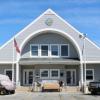Medical Report Suggests Antipsychotics Too Often Overprescribed to Elderly Dementia Patients
"In a new report, it seems that antipsychotic drugs are far too often prescribed, particularly to elder dementia patients (ie Alzheimer’s disease) in nursing homes.
Republican Senator Susan Collins, of Maine, is the chairwoman for the Senate Special Committee on Aging. She says, “The report raises many red flags concerning the potential misuse and excessive use of antipsychotic drugs for patients with Alzheimer’s and other dementias.”
Federal investigators comment that Medicare officials need to take immediate action in order to reduce not only the prevalence of these issues but also the ignorance of them....
Nursing home trade group, The American Health Care Association also comment that antipsychotic drugs do have some benefit for some patients with dementia. Those who suffer hallucinations or delusions, for example, could find great relief, but it is important to monitor use to make sure that they are not overprescribed and not used inappropriately.
The AHCA comments, “Antipsychotic drugs are expensive, costing hundreds of millions of Medicare dollars. They also increase the risk of death, falls with fractures, hospitalizations and other complications.”
The study indicates that several antipsychotic medications may be overprescribed—not just one or two in particular. This could include: Risperdal, Clozapine, Zyprexa, and Abilify." as reported at Pioneer News
****
From a naturopathic perspective, working with elders and their caregivers is an opportunity to address three key naturopathic principles: whole person wellness, first do no harm and treat the cause.
There is no effective known treatment for dementia. But we do know a lot about what affects brain function and brain aging: our nutrition, inflammation, environmental toxins, stress, exercise, and deficiencies of hormones, vitamins, and omega-3 fats.
When we use suppressive medications to control symptoms, we lessen the opportunity for healing all these treatable factors which influence our brain's health.
When we nourish, detoxify and remove inflammation and sources of stress, we are working toward improving function and decreasing the rate of decline of function. The brain is a very delicate yet resilient organ that responds to good nutrition, exercise, stress management and a host of other natural therapeutics.
|
Meet Dr. Furtado |
|
Kim D. Furtado, N.D. received her Doctor of Naturopathic Medicine (N.D.) degree from Bastyr University in Kenmore, Washington. (www.bastyr.edu ) She also holds a Bachelor of Science Cum Laude in Biology from George Washington University in Washington, D.C.
An expert in herbal medicine, nutrition, detoxification and hormone balancing, a mother of five daughters and one grand-daughter, a school garden program director, and an advocate for the environment, Dr. Kim brings her diverse experience to each patient and student. |
Naturopathic Consultations
Clients are seen by Appointment at Quakertown Wellness Center in Lewes, Delaware. First time visits last approximately one and one-half hours. We discuss your main health concerns, including nutrition, sleep, and wellness goals.
Subsequent visits last approximately one hour and are scheduled for two-month intervals or as needed for follow-up care.
Naturopathic doctors are clinically trained in a wide variety of natural therapeutics, such as:
Dietary advice and therapeutic nutrition
Herbal Medicine
Homeopathic medicine and flower essence therapy
Stress management, lifestyle counseling and personal hygiene
Hydrotherapy
Detoxification and heavy metals chelation therapy
Salivary Hormone Testing
Workshops
Join Dr. Furtado for weekend retreats to explore a variety of health and wellness topics.
For more information:
302-945-2107
npih2001@yahoo.com






















































